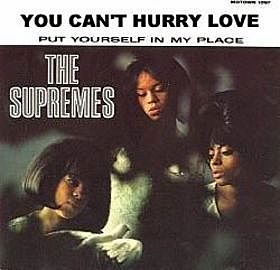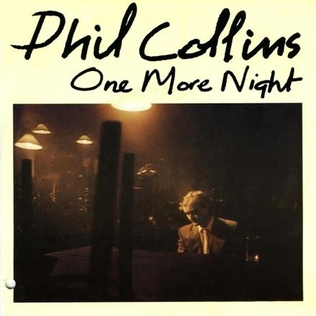Related Research Articles

"In the Air Tonight" is the debut solo single by English drummer and singer-songwriter Phil Collins. It was released as the lead single from Collins's debut solo album, Face Value, in January 1981.

...But Seriously is the fourth solo studio album by English drummer and singer-songwriter Phil Collins. It was released on 20 November 1989 in the United Kingdom by Virgin Records, and on 24 November 1989 in the United States by Atlantic Records. After Collins finished touring commitments with the rock band Genesis in 1987, the group entered a four-year hiatus, during which Collins starred in the feature film Buster (1988). By the spring of 1989, Collins had written material for a new solo album, which addressed more serious lyrical themes, like socio-economic and political issues, as opposed to his previous dance-oriented album, No Jacket Required (1985).

Daryl Mark Stuermer is an American musician, songwriter, singer, and record producer best known for playing the guitar and bass for Genesis during live shows, and lead guitar for Phil Collins during most solo tours and albums. He has also released nine solo albums, and tours with his Daryl Stuermer Band.

"You Can't Hurry Love" is a 1966 song originally recorded by the Supremes on the Motown label. It was released on July 25 of 1966 as the second single from their studio album The Supremes A' Go-Go (1966).

Testify is the seventh solo studio album by English musician Phil Collins. Released in 2002, the album debuted at No. 30 on the American Billboard 200 albums chart, which was also the album's peak position. It was also the second Phil Collins studio album where no track peaked within the American top 40 singles chart. It was also his lowest charting album in the UK, becoming his only solo effort not to reach the Top 5. However, the album achieved success in some countries of Continental Europe. It is his second album not to be co-produced by Hugh Padgham, who co-produced Collins' most successful albums.

"One More Night" is the first single in the United States and second in the United Kingdom from Phil Collins' third studio album, the Diamond-certified No Jacket Required. "One More Night" was Phil Collins' second U.S. No. 1 single, following "Against All Odds", and was his fourth single to reach the top ten in the UK, peaking at No. 4 on the UK Singles Chart. In the U.S., the single entered the Billboard Hot 100 at number 50 on the chart dated 9 February 1985. It hit number one seven weeks later and remained on top for two weeks. In the UK, the single was certified silver by the British Phonographic Industry. It was also his first No. 1 on the U.S. Adult contemporary chart.

"If Leaving Me Is Easy" is a song by Phil Collins from his 1981 album Face Value. Released as the third single from the album, it reached No. 17 in the UK, but was not released as a single in the United States. The song was also a top 40 hit in Ireland, reaching No. 25. Collins sings in a high falsetto in its chorus. The song was later covered by The Isley Brothers for their 1985 album Masterpiece.

"Thru' These Walls" is a song by the English drummer Phil Collins. It was released as a single in October 1982, being Collins' fourth single. The song is also the seventh track and first single release from Collins' second solo studio album, Hello, I Must Be Going!, released in November of the same year. The song is dark, which follows a vast majority of songs from the album, and is about a man listening through the wall to his neighbours partaking in sexual activities.

"I Don't Care Anymore" is a song written, performed, and produced by English drummer Phil Collins. It was the second US single from Collins' second solo album, Hello, I Must Be Going! (1982). It became a moderate US hit, peaking inside the Top 40 (#39), on the Hot 100. It did not see a UK release; however, it was released as the third single in various other countries such as Germany and Australia.

"Heat Wave" is a 1963 song written by the Holland–Dozier–Holland songwriting team. It was first made popular by the Motown vocal group Martha and the Vandellas. Released as a 45 rpm single on July 9, 1963, on the Motown subsidiary Gordy label, it hit number one on the Billboard Hot R&B chart—where it stayed for four weeks—and peaking at number 4 on the Billboard Hot 100.

"Separate Lives" is a 1985 song recorded by Phil Collins and Marilyn Martin and featured on the soundtrack to the motion picture White Nights. It reached No. 1 on the US Billboard Hot 100 and Adult Contemporary charts as well as in Canada and Ireland. It reached No. 4 on the UK Singles Chart, and was certified silver by the British Phonographic Industry.

"Sussudio" is a song by English singer-songwriter Phil Collins, released as a single in January 1985. The song is the first track on Collins' third solo studio album, No Jacket Required, released in February of the same year. The song entered frequent rotation on MTV in May; by 6 July both single and album reached No. 1 on their respective US Billboard charts. The song peaked at No. 12 in the UK Singles Chart.

"Something Happened on the Way to Heaven" is a song by English drummer Phil Collins, released in April 1990 from his fourth studio album, ...But Seriously (1989). The song peaked at No. 4 on the US Billboard Hot 100 the week of October 6, 1990 and No. 15 on the UK Singles Chart. A live version also appears on the Serious Hits... Live! album. The song is often identified by the recurring hook of "How many times can I say 'I'm sorry'?", however, the title of the song is essentially the 2nd line of the 2nd verse.

"Do You Remember?" is a song by the English drummer and singer-songwriter Phil Collins. It was released in April 1990 as the fourth single from his fourth solo studio album ...But Seriously. It was produced by Collins and Hugh Padgham and features singer-songwriter Stephen Bishop on the track as a backing vocalist. The song had minor success in European countries but went to number one on both the Canadian and US Adult Contemporary charts. It also peaked at number four on the US Billboard Hot 100, becoming his 14th and last top-ten hit.

"Hang in Long Enough" is a song performed by Phil Collins and released as a single in 1990 from the album ...But Seriously. It was the sixth and final single from the album. The single reached No. 23 on the U.S. Billboard Hot 100, No. 34 on the UK Singles Chart, and No. 9 in Canada.

"Dance into the Light" is a 1996 song performed by English drummer, singer-songwriter, record producer, and actor Phil Collins, released as the first single from his sixth studio album, Dance into the Light (1996). It reached number nine on the UK Singles Chart, but was a disappointment on the US Billboard Hot 100, reaching number 45. B-sides are songs "Take Me Down" and "It's Over". The song also peaked within the top 10 in Czech Republic, Hungary and Scotland. On the Eurochart Hot 100, it reached number 29 in October 1996. The track was the only song from Dance into the Light to be featured on his compilation album ...Hits in 1998.

"It's in Your Eyes" is a single performed by Phil Collins and released in 1996 as the second single from his album Dance into the Light.
"I Can't Stop Loving You (Though I Try)" is a song written by singer-songwriter William Nicholls and first recorded by his short-lived project, White Horse – a collaboration between himself, Kenny Altman, and Jon Lind – and featured on the group's 1977 self-titled album.

"Wake Up Call" is a double A-side 2003 single release by English drummer Phil Collins from his seventh solo album Testify, released in 2002. The song was released in a double A-side format alongside "The Least You Can Do".

"Who Said I Would" is a song performed by Phil Collins that was originally recorded for his 1985 album No Jacket Required but was released in 1991 as a single from his live album Serious Hits... Live! in the United States and Japan.
References
- ↑ "Phil Collins singles".
- ↑ "Phil Collins – The Least You Can Do" (in Dutch). Ultratip. Retrieved June 26, 2021.
- ↑ "Phil Collins – The Least You Can Do" (in French). Ultratip. Retrieved June 26, 2021.
- ↑ "Phil Collins – The Least You Can Do" (in Dutch). Single Top 100. Retrieved June 26, 2021.